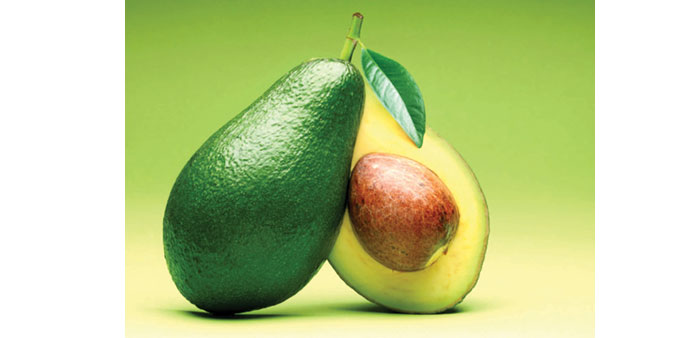Diet is the most important factor as far as cardiac health is concerned. By Howard Cohen
“You can’t fix your health until you fix your diet.” So says Sheah Rarback, a registered dietician on the faculty of the Miller School of Medicine at the University of Miami and a Miami Herald columnist.
The fuel you put into your body, like that in your car, will determine how well you run. The heart is critically essential to the body’s function as it controls the circulation of blood. When you clog its pathways with poor food choices you gum up the works and this can lead to a host of health problems, including death by heart attack.
So what is there to do?
“There is not one single food that will help you lower or raise your cholesterol. Variety is the key. The less processed the food, the better,” said Sonia Angel, registered dietician and co-ordinator of the Diabetes and Nutrition Center at Memorial Regional Hospital.
“Choosing foods in their most natural form is one way to avoid eating added sugars hidden in packaged foods and beverages,” said Lucette Talamas, registered dietician with Baptist Health South Florida. “The American Heart Association recommends daily limits of six teaspoons (24g) for women and nine teaspoons (36g) for men of added sugar from both food and beverages.”
And don’t forget the healthful benefits of exercise, Talamas said. “A daily serving of moderate intensity physical activity can decrease LDL (bad) cholesterol, triglycerides and blood pressure while also increase HDL (good) cholesterol.”
We asked Angel, Rarback and Talamas for a list of heart healthy foods. Here are their suggestions:
Salmon: Wild salmon, not farm raised, is rich in Omega-3 fatty acids, which help boost the immune system. The good fats in salmon reduce inflammation, keep blood flowing and lower triglycerides. Other heart healthy fish are sardines, barramundi and tuna. Two servings a week is a good start.
Ground flax seeds: Rich in fibre and vegetarian Omega-3 that is easily added to a variety of foods like soups and salads. Try them in cereal, yogurt and protein smoothies. Helps reduce blood cholesterol.
Nuts: Walnuts are loaded with vitamin E and Omega-3 fatty acids and are a delicious source for magnesium. These nuts help reduce cholesterol. The American Heart Association recommends eating four servings of unsalted, oil-free nuts a week as part of a balanced diet. Note: These are high in calories. Moderation is key.
Beans and legumes: Include red kidney beans and black beans, chickpeas and lentils. These are all rich in magnesium, vitamin B complex and are a good source of soluble fibre, which reduces cholesterol. These also add folate and magnesium to the diet. Soy is a lean vegetarian protein that may lower cholesterol. Edamame is loaded with fibre that keeps cholesterol down.
Berries: Berries in general are good, but especially blueberries, which are a good source of ellagic acid, an antioxidant that protects blood vessels, lowers blood pressure and reduces LDL. Oranges are rich in flavonoids, vitamin C, potassium, folic and fibre. Oranges also help lower blood pressure and protect blood vessels. (Eat the whole fruit, don’t just drink the juice or you miss out on the heart-healthy fibre.) Other good sources are cantaloupe and papaya.
Oatmeal has Omega-3 fatty acids and is also rich in soluble fibre, magnesium, potassium and niacin. Oatmeal helps to lower LDL. Try steel cut oats for the highest fibre.
Avocado: Packed with healthy monounsaturated fat, which lowers LDL. They promote the absorption of carotenoids that improve heart health. Replacing saturated fat with unsaturated fat sources may improve LDL numbers. An example would be to use vegetable oil (unsaturated) instead of butter (saturated).
Tea: (black or green) is rich in flavonoids, which is an antioxidant that protects cells from damaging free radicals.
Dark chocolate: The high flavanol content has a blood thinning effect that the heart loves. A compound in dark chocolate called epicatechin boosts nitric oxide, which dilates blood vessels and lowers blood pressure. Pick carefully at the candy counter. The dark chocolate has to be 70% pure cocoa or higher to be beneficial. The recommended portion is two small pieces a day.
Above all, changes in diet must become a lifestyle modification, not just a temporary fix to help you squeeze into your clothes for a 30th high school reunion or a wedding. “We must consider changing our lifestyles for heart health,” Angel said. “We recommend that people practice moderation in their diets, including a variety of foods such as lean protein, fibre and low saturated food. Foods rich in fibre can help you stay fuller, and therefore may help reduce weight.”
And watch the salt.
“Flavour your food with herbs and spices to prepare delicious sodium-controlled meals that won’t raise your blood pressure,” Talamas said. — Miami Herald/TNS

Avocado
